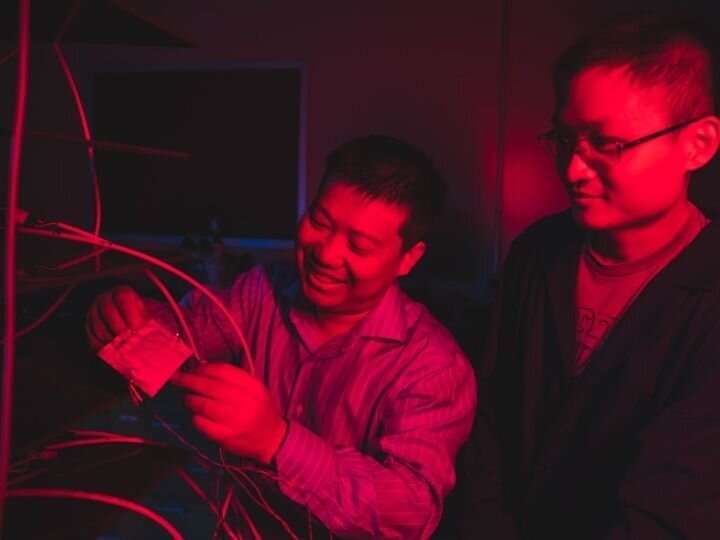
Lithium-ion batteries are currently the preferred technology to power electric vehicles, but they’re too expensive for long-duration grid-scale energy storage systems, and lithium itself is becoming more challenging to access.
While lithium does have many advantages—high energy density and capacity to be combined with renewable energy sources to support grid-level energy storage—lithium carbonate prices are at an all-time high. Contributing to the rising cost are pandemic-related supply-chain bottlenecks, the Russia-Ukraine conflict and increased demand from businesses. Additionally, many governments are hesitant to green light lithium mines because of the high environmental costs and the potential of human rights violations.
As governments and industries all over the world are eager to find energy storage options to power the clean energy transition, new research conducted at the University of Houston and published in Nature Communications suggests ambient temperature solid-state sodium-sulfur battery technology as a viable alternative to lithium-based battery technology for grid-level energy storage systems.
Yan Yao, Cullen Professor of Electrical and Computer Engineering, and his colleagues developed a homogeneous glassy electrolyte that enables reversible sodium plating and stripping at a greater current density than previously possible.
“The quest for new solid electrolytes for all-solid sodium batteries must concurrently be low cost, easily fabricated, and have incredible mechanical and chemical stability,” said Yao, who is also principal investigator of the Texas Center for Superconductivity at the University of Houston (TcSUH). “To date, no single sodium solid electrolyte has been able to achieve all four of these requirements at the same time.”
The researchers found a novel form of oxysulfide glass electrolyte that has the potential to satisfy all of these requirements at the same time. A high-energy ball milling process was used to create the electrolytes at room temperature.
“The oxysulfide glass has a distinct microstructure, resulting in a completely homogeneous glass structure,” said Ye Zhang, who works as a research associate in Yao’s group. “At the interface between sodium metal and the electrolyte, the solid electrolyte forms a self-passivating interphase that is essential for reversible plating and stripping of sodium.”
It has proven difficult to achieve stable plating and stripping of sodium metal using a sulfide electrolyte.
“Our study overturned this perception by establishing not only the highest critical current density among all Na-ion conducting sulfide-based solid electrolytes, but also enabling high-performance ambient-temperature sodium-sulfur batteries,” Yao explained.
“The new structural and compositional design strategies presented in this work provide a new paradigm in the development of safe, low-cost, energy-dense, and long-lifetime solid-state sodium batteries,” Zhang added.
Xiaowei Chi et al, An electrochemically stable homogeneous glassy electrolyte formed at room temperature for all-solid-state sodium batteries, Nature Communications (2022). DOI: 10.1038/s41467-022-30517-y
Citation:
Researchers develop alternative to lithium batteries (2022, May 31)
retrieved 31 May 2022
from https://techxplore.com/news/2022-05-alternative-lithium-batteries.html
This document is subject to copyright. Apart from any fair dealing for the purpose of private study or research, no
part may be reproduced without the written permission. The content is provided for information purposes only.
Stay connected with us on social media platform for instant update click here to join our Twitter, & Facebook
We are now on Telegram. Click here to join our channel (@TechiUpdate) and stay updated with the latest Technology headlines.
For all the latest Technology News Click Here
For the latest news and updates, follow us on Google News.
